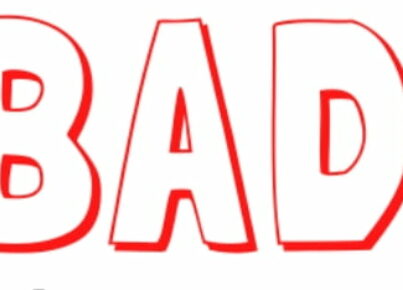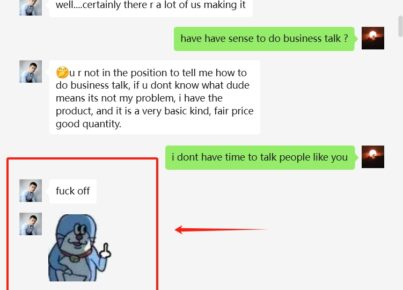Most design jobs combine creativity and technology into one role, which often plays a major part in developing some of our favorite forms of entertainment. While design jobs can be competitive and demanding, it’s a great career path for anyone truly passionate about visual aesthetics.
Here are five design career paths that can lead to a cushy salary.
Video game designer
What you’d do: Video game designer probably sounds like a dream job to any video game enthusiast, and if you can make it in the business, it comes with a pretty lucrative career path. As a video game designer, you will be responsible for the creation and implementation of creative designs alongside engineers, programmers, and artists. Having a degree in computer graphics, programming, art, or another related field will help you gain the experience you need to become a video game designer.
What you’d need: A bachelor’s degree in computer graphics, art, or a related field is typical. Video game design is a highly competitive field, so you will need to be on the top of your game (no pun intended) if you want to succeed. The level of technical understanding you will need to create video games can be intense and the expectations are generally very high from consumers and clients. Important skills include a strong understanding of math, analytical skills, written and verbal skills, object oriented programming (OOP), and Adobe Photoshop.
What you’d make: According to PayScale, the average salary for a video game designer in UK is £60,013 per year, with a reported salary range of £36,201 to £99,576.
Product designer
What you’d do: Think about the items you use in your daily life and ask yourself, “Who made this?” Answer: A product designer made that. From toothbrushes and tools to cameras and camping equipment, a product designer was hired to either come up with new designs or improve existing ones. Product designers work in a variety of fields—basically, any industry that makes consumer products relies on product designers to see an item through the initial stages of sketches and illustrations to the final stages of mass production.
What you’d need: A bachelor’s degree in industrial design is an ideal first step in your career as a product designer.
What you’d make: According to PayScale, the average salary for a product designer in UK is £76,081 per year, with a reported salary range of £43,988 to £122,267.
User experience designer
What you’d do: We all like our web, mobile, and desktop experiences to be functional and appealing to the eye, but those outside of the design industry might not realize how much goes into creating that palatable user experience. User experience designers are tasked with developing functional designs that are appealing to the front end user. As a user experience designer, you will work closely with developers and other designers in the process to make sure the overall vision is ultimately realized. You will work closely with clients and other departments to figure out the overall design within the requirements. Part of your role will include working closely with departments such as sales, marketing, and product to better understand what users and clients want.
What you’d need: You will need a bachelor’s degree, and it will help if you have have a background in psychology or sociology to better understand the end user. The skills required for this role include user research, usability testing, interaction design, information architecture, and user interface design.
What you’d make: According to PayScale, the average salary for a user experience designer in UK is £72,886 per year, with a reported salary range of £48,593 to £103,650. User experience designer is a job with a strong career path if you can get in on the ground floor and move up through the ranks.
Animator
What you’d do: Animators are responsible for bringing us some of our favorite forms of entertainment, but the job isn’t all fun and games. As an animator you will have a demanding schedule, so you’ll want to make sure you are truly passionate about animation before dedicating time and energy into getting a job in the field. Your main responsibilities will include working with teams to develop your creative goals as well as designing, refining, improving and updating videos.
What you’d need: In order to become an animator, you will want to first get your bachelor’s degree in in fine art, computer graphics, animation, or another similar field. Your portfolio will be important in landing you a job, so be sure to add strong pieces and keep it up to date as you go through school and even after you graduate.
What you’d make: According to PayScale, the average salary for an animator is £50,680, with an average salary range of £31,937 to £82,072 per year. Skills associated with higher pay include 2D animation, 3D animation, and Autodesk Maya.
User interface designer
What you’d do: A user interface designer is responsible for making sure that the user experience on desktop, mobile, or the web is seamless and functional. Unlike a user experience designer, a user interface designer needs experience in programming and software development for desktop, mobile, and the web. The main responsibilities of a user interface designer are to develop and create a usable and attractive user interface. You will also be responsible for testing out the design for usability as well as researching trends to ensure you create a finished product that both the end user and your client will want to use.
What you’d need: You will need a bachelor’s degree in industrial engineering, human computer interactions, cognitive psychology, and any related field. It will be important to understand not only how programs work, but also how users interact with those programs in a fluid way. Popular skills for this role include JavaScript, Cascading Style Sheets (CSS), Adobe Illustrator, and HTML.
What you’d make: According to PayScale, the average salary for a user interface designer in UK is £68,362 per year, with a reported salary range of £42,678 to £100,821 per year. It’s a role that can lead to other higher paying roles down the line, including senior user experience architect or senior user experience designer.
Design your career path
As an artist, you know part of the joy is not only the process but also the result of seeing people interact with your work. All of this is to say exposure matters. The same holds true for your resume when you’re on a job search. The more eyes that see it, the better. Could you use some help getting your resume in front of hiring managers? Join Monster today. As a member, you can upload up to five versions of your resume or cover letter, each tailored to the types of design-centric jobs that interest you. Recruiters search Monster every day looking to fill top positions with qualified candidates, just like you. Additionally, you can get job alerts sent to your inbox so you can be among the first to apply to great jobs. Forget the struggling artist route; get noticed and get hired.






You must be logged in to post a comment.